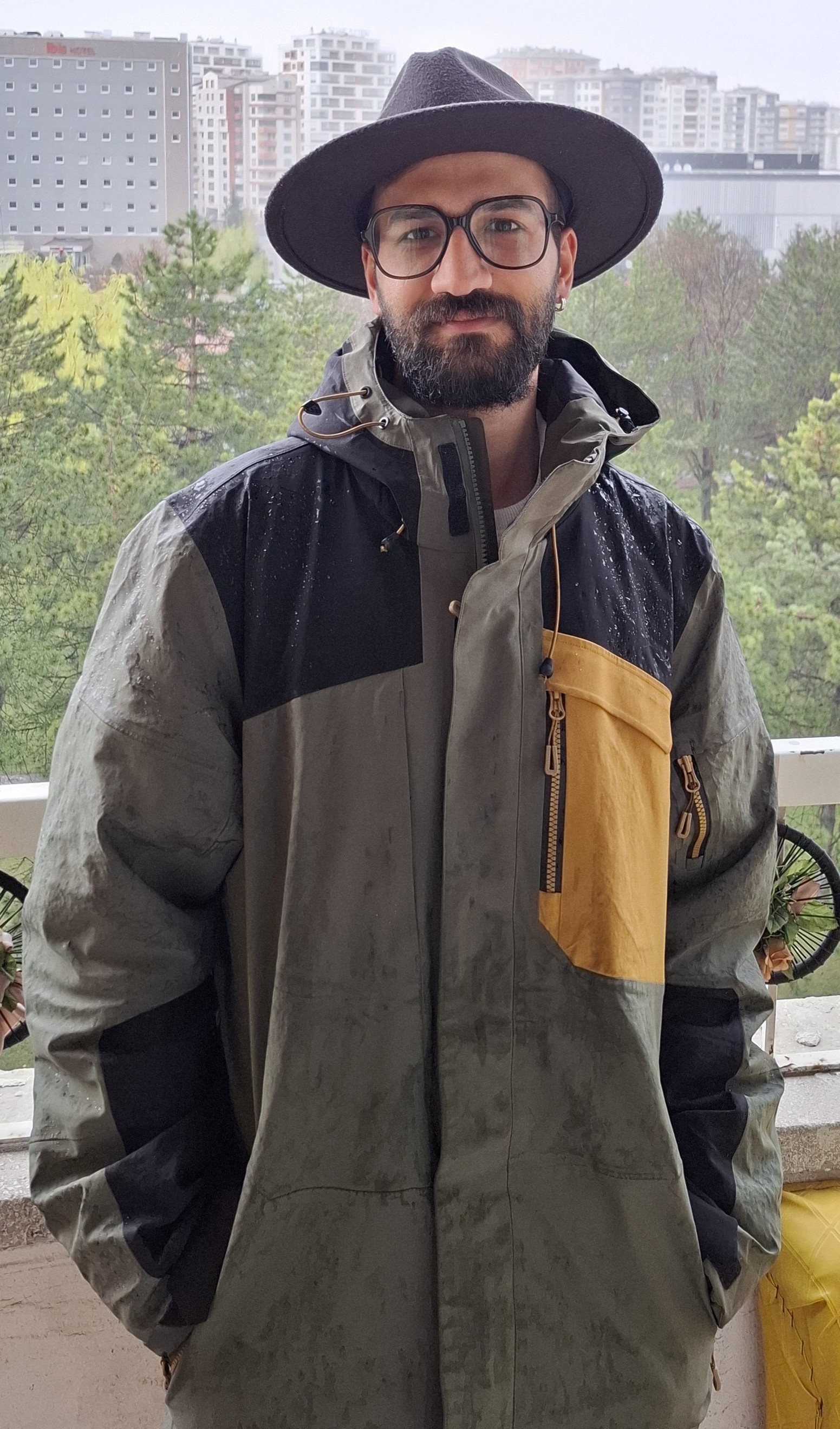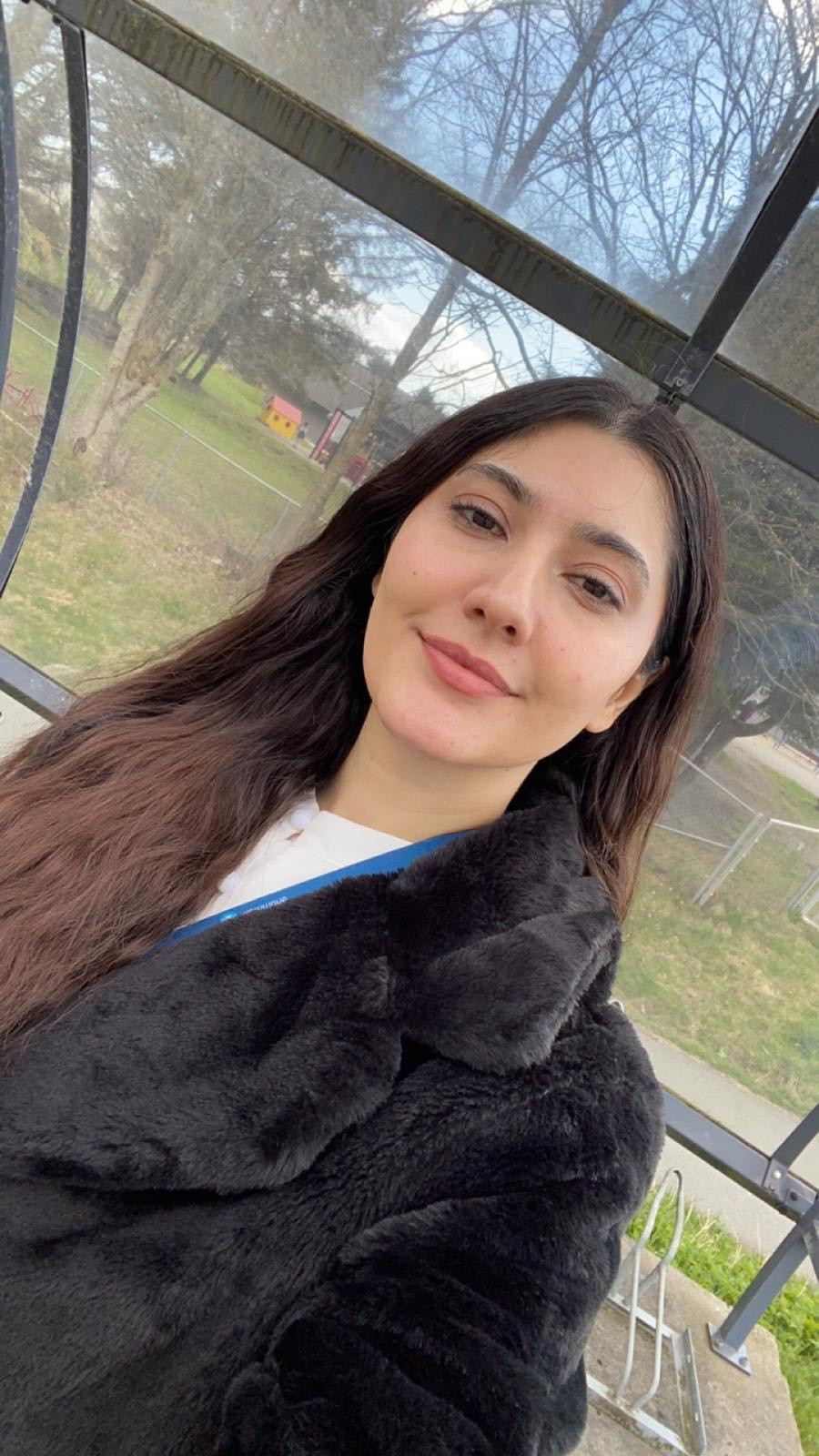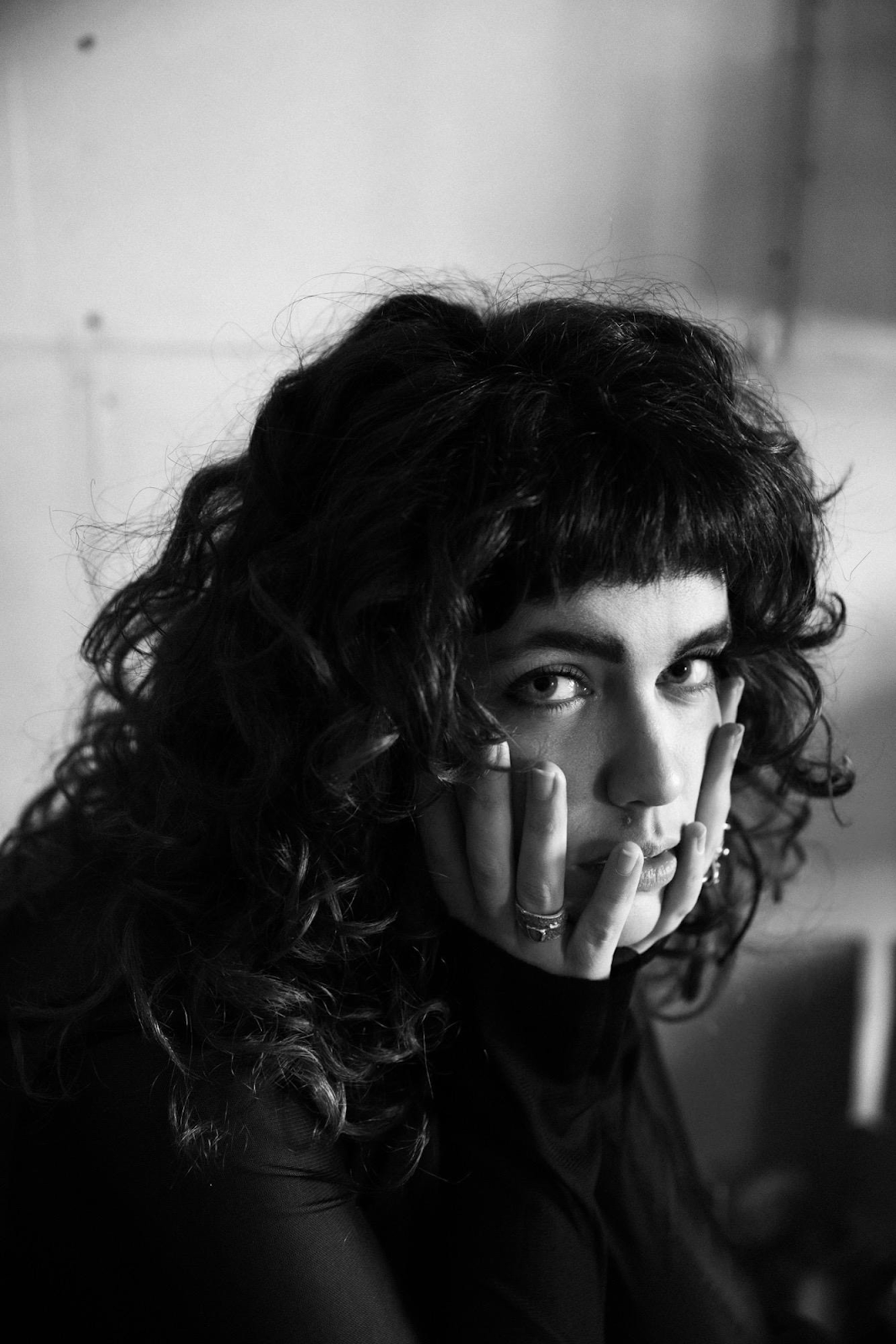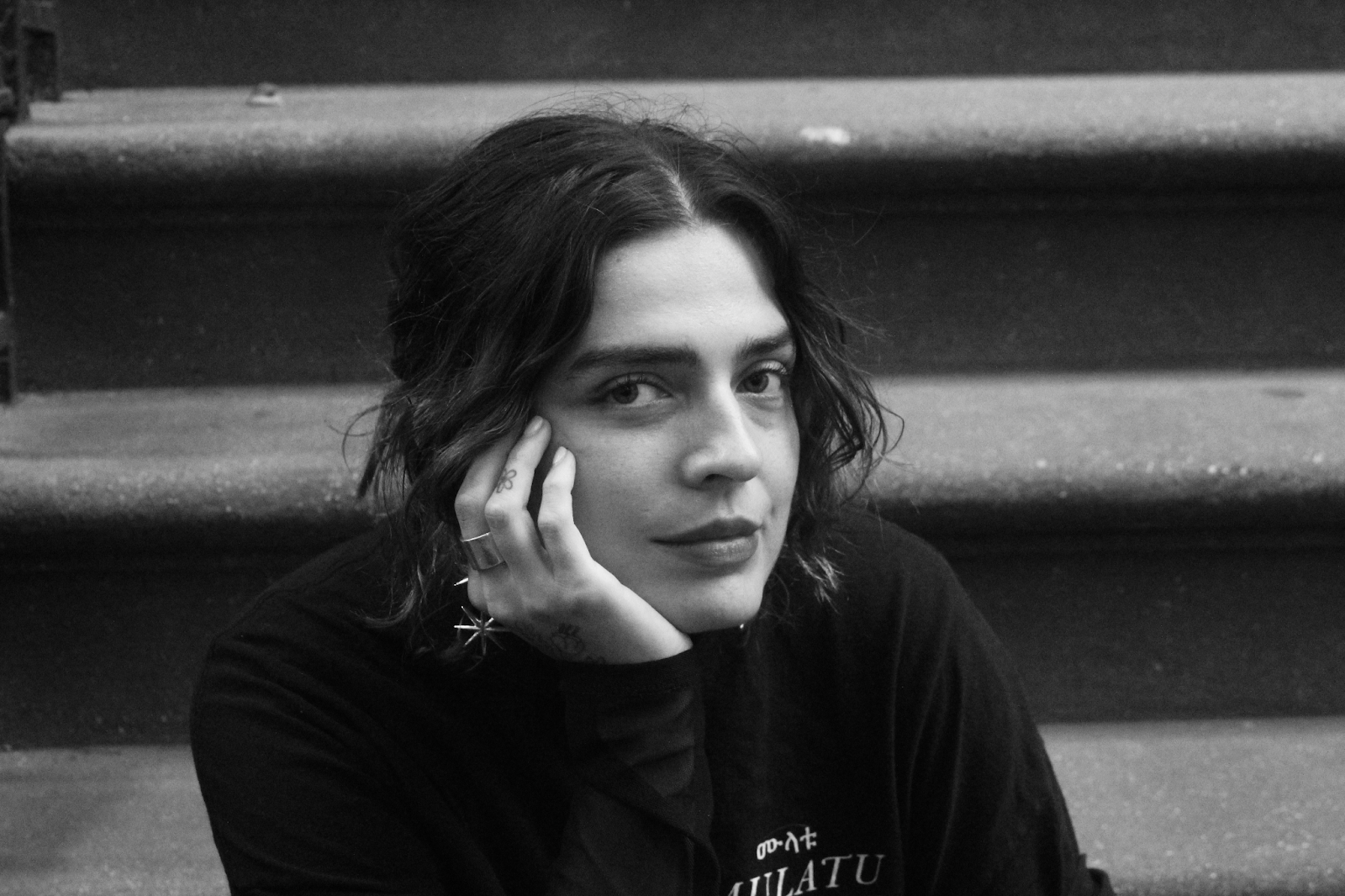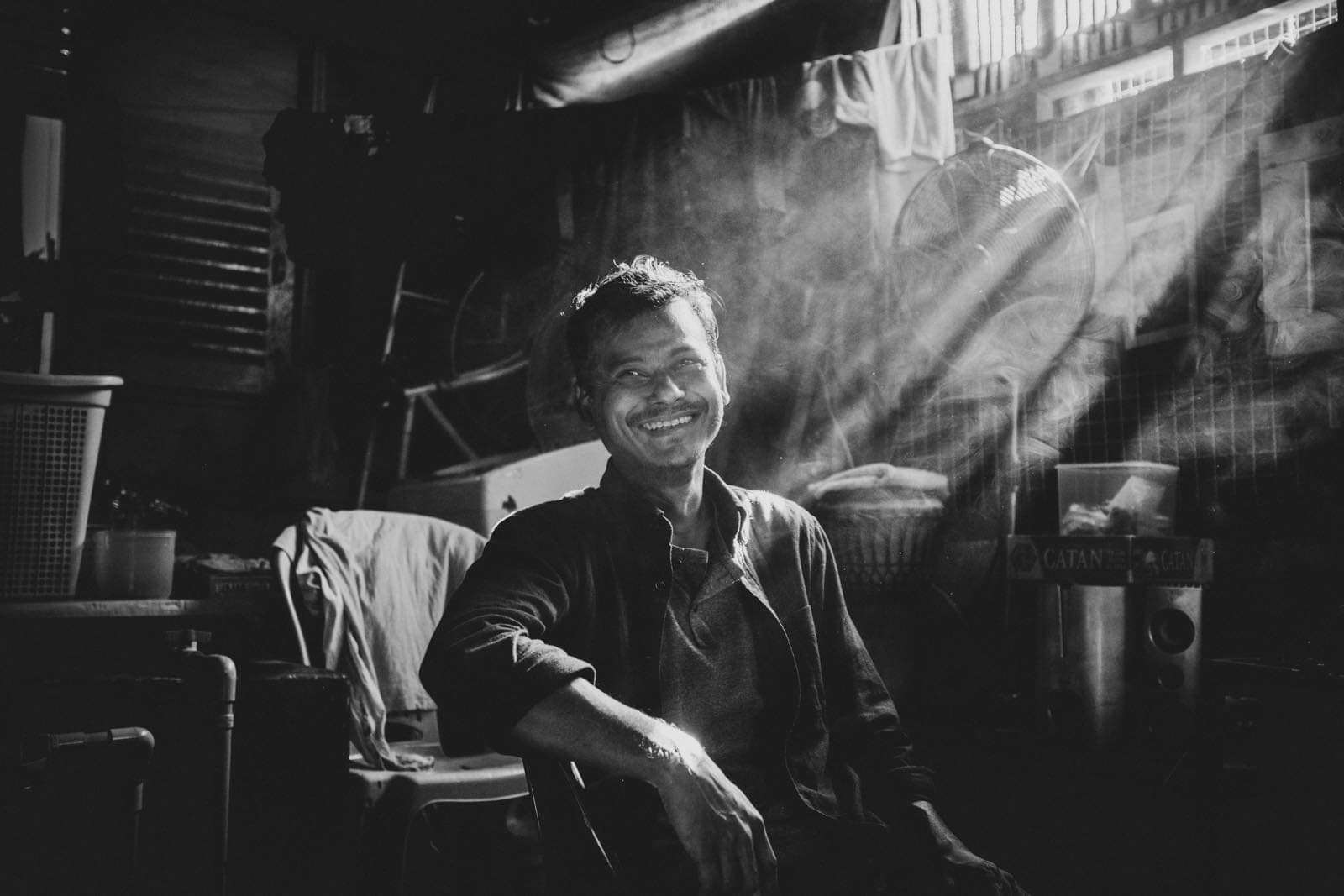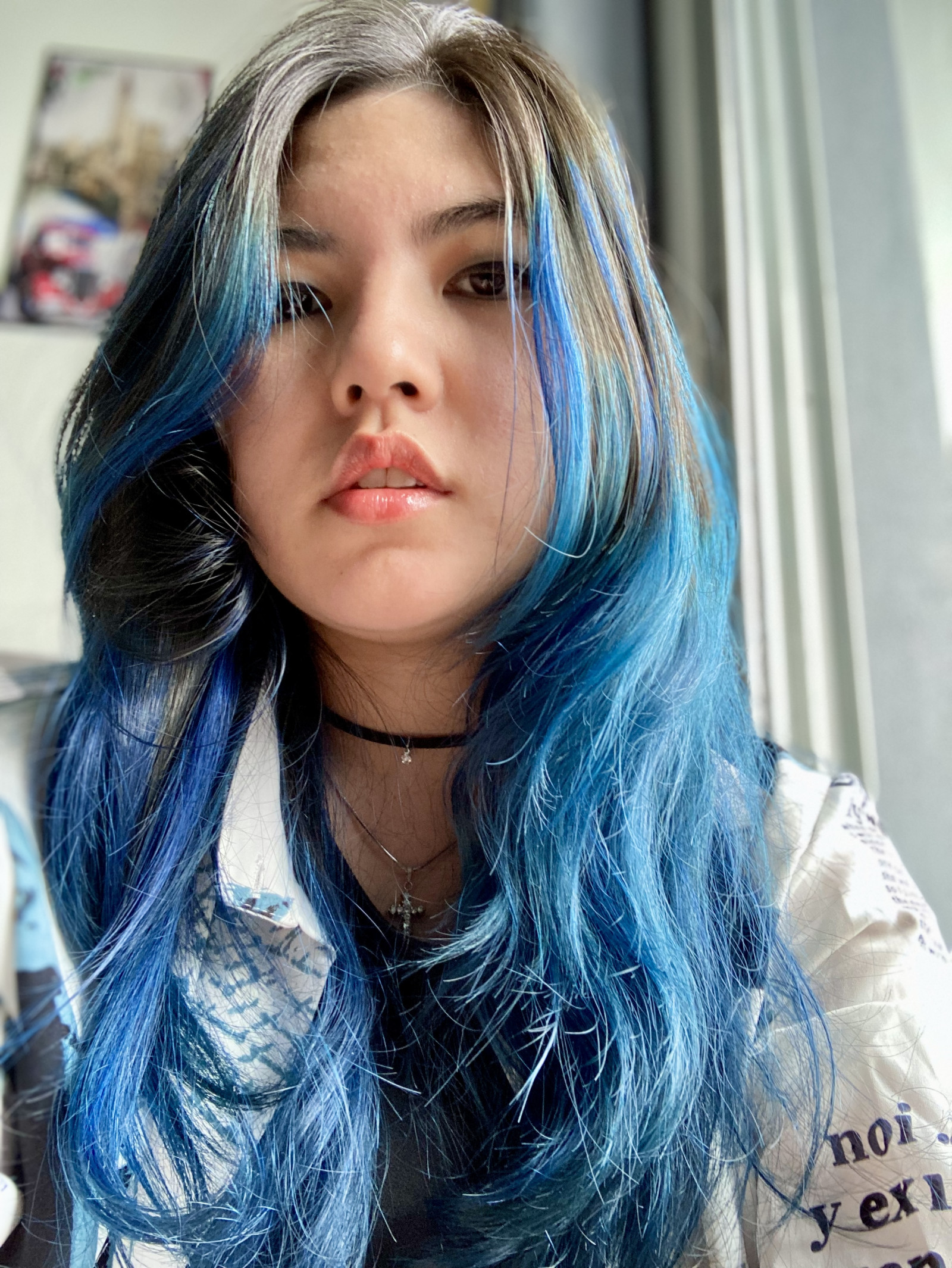English Translation
Se había obsesionado con la música. Con hacer algo único. Algo irrepetible.
Cuando era niño, sus padres lo obligaban a sentarse frente al violín, con un pedazo de pan y un vaso de agua que debían durarle hasta el fin de la lección o de la práctica.
Sus padres querían un genio. Un niño genio. Un virtuoso de la creación como Mozart. Un virtuoso del violín como Paganini. No iban a conformarse con menos: el mejor de los músicos nacidos en este mundo y en las próximas ocho realidades alternativas.
Él se esforzó. Realmente lo hizo. Estudiaba no dos horas, sino cuatro, frente a aquellas cuerdas de violín que se negaban a ser violadas. Y luego seis, ocho, diez horas. Se esforzó hasta que le salieron callos en el cuello, en los dedos y hasta en las nalgas como un marcaje de su obsesión por la grandeza.
Con el paso del tiempo —tras años y años de práctica— se convirtió en un violinista. Uno bastante mediocre, pero graduado de la academia a pesar de todo. Luego de la muerte de sus padres, se hizo miembro de una orquestica de cuerdas que ensayaba en las afueras del pueblo. Y nada más.
Llevaba una vida patética. Su única compañía era un gato tuerto, cuarenta partituras de diferentes compositores y ocho tratados sobre morfología musical.
Fue entonces que le llegó su momento.
El momento por el que había esperado toda la vida.
Una mañana indiferente, como otra cualquiera de su vida, el director de la orquestica de cuerdas le entregó un manojo de pentagramas y le dijo, casi en broma y casi en reto: «Va usted a estrenarme esta pieza».
Aquella noche, en la soledad de su cuarto, el violinista tuvo un ataque de pánico, abrazó al gato tuerto de tal manera que casi lo asfixia, regó las partituras por todo el suelo, agarró el atril, enganchó el manojo de pentagramas que el director le había entregado y se decidió a tocar, y a tocar, y a tocar. Insistentemente.
Pronto corroboró lo que siempre había sabido: su talento era apenas una brizna de hierba que se difuminaba en la garganta de un bosque. El momento por el que había esperado toda su vida iba a escapársele entre las manos, sin que pudiera hacer nada para retenerlo.
Tener un violín y la persistencia que se le había contagiado en sus muchos años de práctica no eran suficiente. Añorar no es ni siquiera extraordinario. Con mucha suerte conseguiría estrenar la pieza, y por supuesto que recibiría algunos aplausos condescendientes de los ancianos que asistían cada domingo a los conciertos, y cuanto más la sonrisa tolerante y ciertamente burlona de los otros músicos a su alrededor. Su momento de gloria duraría ocho minutos, y luego toda su vida volvería a reducirse dentro de las cuatro paredes de su habitación.
Era preciso que encontrase alguna manera de alcanzar lo extraordinario, la sombra esa de la genialidad de las que tantos hablaban y pocos conseguían.
La idea le llegó de repente. Un lapso de genialidad.
Aquella misma noche, tomó el cuchillo de la cocina y fue rasgándose la piel del vientre con mucho cuidado. Detenía la hemorragia con un trapo rojo. Su carne cedió a los pocos minutos. Él dejó que colgara, apenas sostenida por unos pedazos de piel, bien pegada a la ingle. Luego se le hizo necesario sacar algo de la grasa, y un poco de epidermis, para que dentro de su vientre hubiera espacio de sobra. Siempre con cuidado, desprendió las cuatro cuerdas del violín y luego fue colocándolas —agarradas por tiritas de piel— dentro de su propia cavidad. Tensó las cuerdas, afinó con suma precisión y tomó el arco.
Durante más de ocho días se abrió la herida cada noche para ensayar el concierto y, después de varias horas, volvía a cosérsela.
Ni siquiera sentía demasiado temor cuando llegó el momento del estreno.
Era uno de esos domingos patéticos de concierto, a los que solo asistía la gente más aburrida del pueblo, los borrachos trasnochados, los callejeros sin destino o los atormentados por su condición de humanidad sin retorno. Mientras se preparaba para su interpretación, el violinista sentía cómo le temblaban las manos, cómo el sudor le resbalaba por las nalgas y se concentraba en los pliegues de grasa en su cogote. Pero, en general, sentía el espíritu calmado. Aquel iba a ser el mejor momento de su vida. Por el que había esperado siempre. Más le valía aprovecharlo.
El director de la orquesta alzó la batuta para marcar los compases y dar inicio al concierto. Muy lentamente, el violinista fue quitándose las pinzas que sostenían la carne de su vientre, sacó el arco, afinó las cuerdas ante la mirada de asombro (o de incredulidad) del director y comenzó a interpretar su solo.
Hacia el final del concierto, una de las cuerdas cedió dentro de su cavidad. Las tiritas de piel habían soportado demasiada presión.
Del vientre del músico comenzó a fluir un río de sangre.
El director ordenó un silencio inmediato. En el público se escucharon los primeros gritos de horror. Pero, a pesar de todo, él no dejó de tocar. Todavía le quedaban dos minutos de esplendor absoluto, de la sombra de la genialidad que había logrado asir al menos una vez en la vida.
Al finalizar el solo, lo llevaron al hospital a rastras, pálido y decidido de que había cumplido su propósito en el mundo. El diagnóstico fue certero: infección aguda y peligro de muerte por la gran pérdida de sangre.
Tuvo la suerte de sobrevivir. A los dos meses, fue dado de alta. Afuera, los representantes de los principales conservatorios, los teóricos y críticos musicales, y hasta los medios de difusión masiva lo esperaban como las moscas a punto de caer sobre el dulce.
Desde entonces y hasta hoy, alrededor del violinista se reúnen las jóvenes promesas del mundo musical, que vienen desde tierras bien lejanas a nutrirse del Maestro. Gracias a él aprenden nuevas técnicas de afinación corporal en cavidades, ensamblaje de cuerdas en tiras de carne, además del oficio de luthieres de vientre y especialistas en transfusiones.
El pueblito donde el Maestro vive se ha convertido en la Meca de la música contemporánea. Nadie duda en llamarlo el nuevo Paganini, un renovador, un transformador de las técnicas instrumentales. Un, cómo se dice, visionario. Su visión creativa es comparada en todo el orbe con la de Mozart, y varias instituciones y conservatorios se disputan su nombre para crear nuevos centros de formación de violinistas, chelistas y violistas corporales.
Los titulares de los periódicos proclaman: HA NACIDO UNA ESTRELLA, y aplauden como locos cada vez que, en los cada vez más escasos conciertos que el Maestro ofrece, una cuerda cede y el reguero de sangre salpica a las primeras filas de los espectadores.
A nadie le molesta este pequeño incordio.
Al fin y al cabo, es la sangre de un genio.
ENGLISH
He had become obsessed with music. With creating something unique. Something without equal.
When he was a little boy, his parents made him sit before the violin with a piece of bread and a glass of water that had to last him until the lesson or practice session was over.
His parents wanted a genius. A child genius. A creative prodigy like Mozart. A violin virtuoso like Paganini. They would not be satisfied with anything less than the best musician born in this world and in the next eight alternative dimensions.
He tried hard. He really did. He practiced for four hours instead of two, facing those violin strings that refused to bend to his will. And then it was six, eight, ten hours. He tried and tried until callouses formed on his neck, fingers, and even on his buttocks, symbols of his obsession with greatness.
As time passed—after years and years of practice—he became a violinist. A fairly mediocre one, but one who had graduated from the conservatory, all the same. After his parents' death, he became a member of a string ensemble that rehearsed on the outskirts of town. And that was it.
He lived a pitiable existence. His only companions were a one-eyed cat, forty arrangements by various composers, and eight treatises about musical morphology.
And that's when his moment arrived.
The moment he had been waiting for his whole life.
One morning like any other, the conductor of the string orchestra handed him a stack of sheet music and said, half jokingly and half as a dare, “You're going to debut this piece.” That night, alone in his room, the violinist had a panic attack. He hugged his one-eyed cat so tightly that it almost suffocated. He dumped the other arrangements all over the floor, grabbed the music stand, clipped the pile of sheet music the conductor had given him onto it, and resolved to play and play and play. Relentlessly.
Not long after, he confirmed what he had always known: his talent was no more than a blade of grass barely visible in a forest ravine. The moment he had waited for all his life was going to slip from his grasp, and there was nothing he could do about it.
Having a violin and the persistence instilled in him through years of practice weren't enough. Even longing for something didn't feel particularly inspiring anymore. With a bit of luck, he'd get to debut the piece. He would, of course, receive a scattering of lacklustre applause from the elderly audience members who went to the concerts every Sunday, and, worse still, the indulgent and obviously contemptuous smiles from the other musicians in the orchestra. His moment of glory would last all of eight minutes, and then his whole life would shrink back to the four walls of his room.
He had to find some way to achieve the extraordinary, that shadow of genius that so many talked about, but so few achieved.
The idea came to him in a flash. A moment of genius.
That very night, he took a knife from the kitchen and carefully cut open his belly. He staunched the flow of blood with a red rag. Within a few minutes, his flesh fell away. He let it hang there, barely held in place by a few strips of skin still stuck to his groin. Then he had to excise some of the fat and a little of the epidermis so there would be plenty of room inside his belly. With great care, he removed the four strings from the violin and then placed them—secured by strips of skin—inside his own body cavity. He pulled the strings taut, tuned them with meticulous precision, and picked up the bow. For more than eight days, he opened the wound every night to rehearse for the concert, and after several hours, he would sew it back up again.
He barely felt any stage fright when the opening night arrived.
It was one of those pathetic Sunday concerts, attended only by the dullest people in town, the drunks who had been up all night, the homeless with nowhere to go, or those tormented by their irreparable human condition. As he readied himself for the performance, the violinist felt his hands shaking, sweat trickling down his buttocks, and focused on the rolls of fat on the back of his neck. But, for the most part, he felt calm. It was going to be the supreme moment of his life. The one he had always waited for. He had to make the most of it.
The conductor raised his baton to set the tempo and begin the concert. The violinist very slowly removed the clamps holding the flesh to his stomach, took out his bow, tuned the strings beneath the conductor's surprised (or incredulous) gaze, and began his solo. Toward the end of the concert, one of the strings snapped inside his cavity. The strips of skin had endured too much tension.
A river of blood began to flow from the musician's belly.
The conductor ordered immediate silence. The audience's first cries of horror rang out. But even so, he did not stop playing. He still had two minutes of utter splendor left, two minutes in the shadow of the greatness that he had managed to attain for once in his life. At the end of the solo, he was dragged off to the hospital, pale and convinced that he had fulfilled his purpose in the world. The diagnosis was definitive: acute infection and a possible fatal condition due to extreme blood loss.
He was lucky enough to survive. After two months, they discharged him from the hospital. Outside, representatives from the leading conservatories, music theorists and critics, and even the mass media were waiting for him like flies swarming around something sweet.
Since then and to this very day, young hopefuls in the music world come from distant lands to gather around the violinist and draw inspiration from the Maestro. Thanks to him, they learn new techniques for body tuning in cavities, mounting strings on strips of flesh, and the professions of belly luthiers and blood transfusion specialists.
The little town where the Maestro lives has become a Mecca for contemporary music. No one hesitates to call him the new Paganini, a pioneer, an innovator of instrumental technique. A visionary, you might say. Around the world, his creative acumen is compared to Mozart's, and several institutions and conservatories are vying with each other to use his name to open new academies for violinists, cellists, and violists. The newspaper headlines proclaim: A STAR IS BORN, and, in the increasingly rare concerts that the Maestro performs, they all applaud like crazy every time a string breaks and the trickle of blood splatters the front rows of the audience.
No one is bothered by this minor inconvenience.
After all, it is the blood of a genius.
— Translation from Spanish by D. P. Snyder
Biography
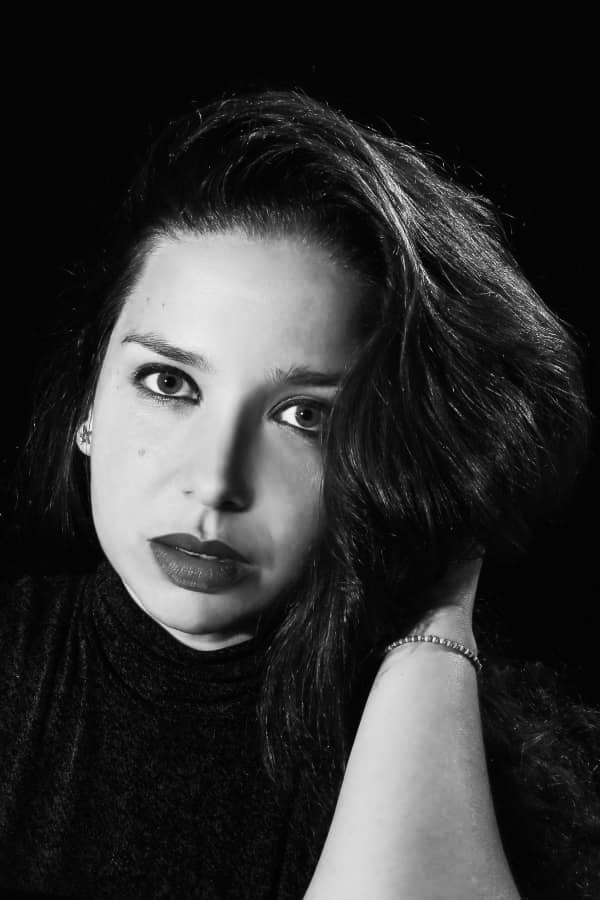
ESP. Elaine Vilar Madruga (La Habana, 1989) es narradora, poeta y dramaturga. Es considerada una de las voces literarias más importantes de la Cuba y el Caribe actuales. Con siete ediciones, uno de sus mayores éxitos de ventas y de crítica es la novela La tiranía de las moscas, la cual obtuvo el Premio Cálamo como Mejor Libro del Año en 2021. En 2023 se lanzó en España su novela El cielo de la selva, publicada en Barcelona por Lava Editorial, la cual ha sido acogida con éxito por la crítica especializada y los lectores (con nueve ediciones en dos años). Sus textos abordan las políticas individuales del cuerpo, el género y las disidencias, y las políticas relacionadas con la Historia reciente de su país en contextos de opresión, silencio y claustrofobia.
ENG. Elaine Vilar Madruga (Havana, 1989) is a fiction writer, poet, and playwright. She is considered one of the most important literary voices in contemporary Cuba and the Caribbean. The most critically and commercially successful of her seven works is the novel La tiranía de las moscas, which won the Cálamo Prize for Best Book of the Year in 2021. In 2023, her novel El cielo de la selva, released in Spain by Lava Editorial in Barcelona, has been warmly received by critics and readers alike, and was reprinted nine times in just two years. Her work explores individual politics of the body, gender, and dissidence, as well as the political reality of Cuba's recent history, emphasizing oppression, silence, and claustrophobia.

